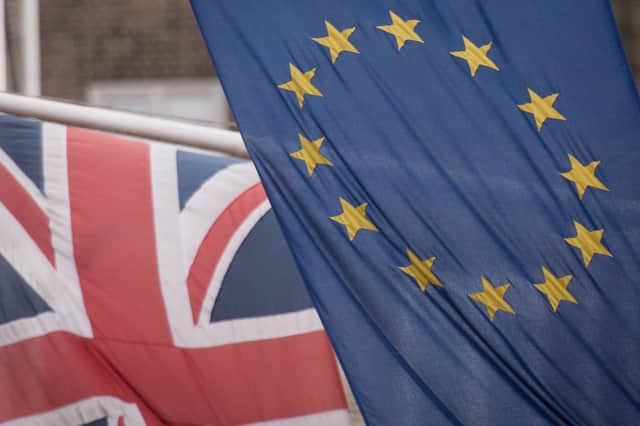Don't blame issues on Brexit we are still masters of our own destiny - Yorkshire Post Letters


Andy Brown's article regarding Brexit in today’s Yorkshire Post (October 18) gives an interesting insight into the thoughts of a 'glass half empty' contributor and cannot be allowed to pass without comment from a different angle.
As is common with letters/articles concerning what has happened in the UK since the referendum vote in 2016 many of the writers use a business-centric approach. Businesses are there to make a profit, there is no other reason for their existence.
Advertisement
Hide AdAdvertisement
Hide AdIn order to do this the main mantra of the owners is simply supply and demand in that when demand is high prices (and of course profits) boom, owners are well rewarded and employees may or may not get sweeteners for their efforts.
Rarely do they share in the beanfeast, unless they are well hoisted up the corporate ladder. This is how capitalism works, we are all well used to it and I am not proposing any radical change in this article.
Unfortunately the same mantra appears not to be acceptable to the business community with regard to staffing, in that when a business has a shortage of staff the approach is not to offer to pay more to attract staff (supply and demand), but to complain that Brexit has prevented the import of cheap labour in order to keep costs down.
Note that you will never hear of chief executives and senior management being paid at minimum wage rates in order to achieve the same goal. Levelling up the supply and demand tenet so that employees can take their labour to the highest bidder has been one of the best outcomes for the UK population as a whole.
Advertisement
Hide AdAdvertisement
Hide AdUnemployment in the UK currently stands at 3.5 per cent, which is lower than the rate in the EU at 6.3 per cent and job vacancies allow ease of movement for better pay. Of the 27 countries in the EU only 3 have a lower unemployment rate than the UK.
Remember also that Brexit did not take effect in 2016 since the UK was prevented from making steps toward trade arrangements with other nations for a further four years. The restrictions placed on the UK during that period held the effective leaving of the UK in abeyance and the subsequent penalties in both cash and goods terms is likely to be a heavy burden on the UK for many years to come. As for unfair competition from cheap imports (Andy Brown), if trading is now open for business it is up to the UK to determine who and on what terms the UK will trade with others, not faceless mandarins in Brussels. We are masters of our own destiny.
The jibe at the City of London financial centres is simply envy of a successful structure that drives the economy and which contributes billions from around the world to our Exchequer.
An assertion often made regarding the slump of the £ against the US dollar since 2016 is a red herring and says more about the strength of the dollar rather than the weakness of the pound. In 2016 the £ was valued at 1.16 Euros. Today it is still close to that figure in spite of all the Covid and Governmental upheavals of the last two years.
The EU is a cumbersome, inward looking, one size fits all structure which will be unable to adapt as quickly as more nimble economies around the world.